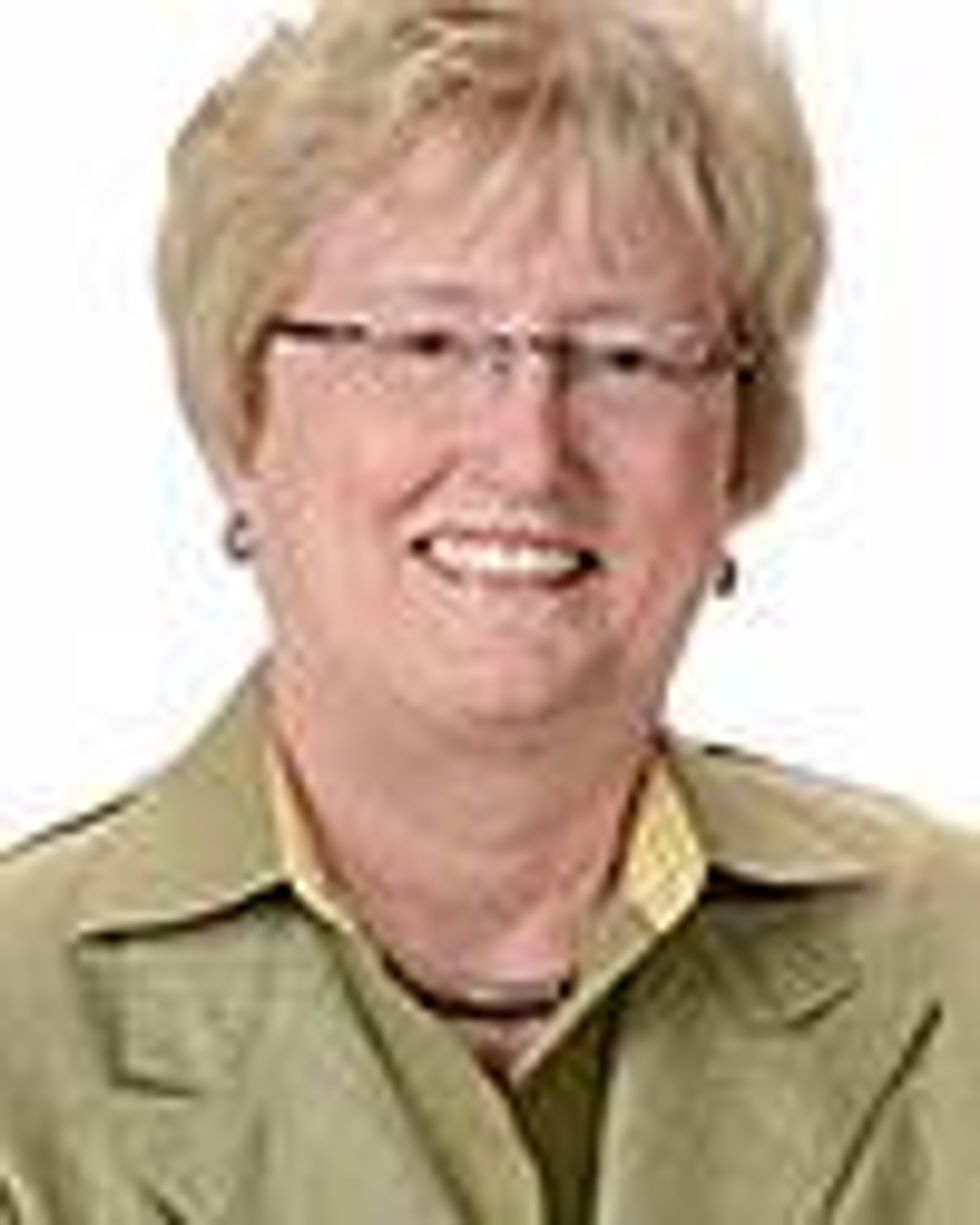Isolating. That is probably the best word to describe how I felt as I hid my sexuality from my family, friends, and colleagues for the first 15 years of my professional life. Sharing the fact that I was a lesbian was not on my agenda as I climbed the corporate ladder in the 1980s and early '90s. I was a top executive at one of the Midwest's premier teaching hospitals, on the path to becoming the health system CEO. There was no way I was going to risk sharing my personal life with the rest of the world. My partner and I even bought separate homes in the same development to keep up the ruse.
I believed that the only way that I could confidently pursue my dreams was to compartmentalize my life and work. It was a lonely existence and, at times, I felt powerless. The secrecy put a lot of stress on my relationship with my partner.
Then, in 1993, I was outed in an anonymous letter sent to my boss and the board members at the hospital where I was COO. It was terrifying. My career meant the world to me, and I lived with constant anxiety that my sexuality would be used against me. It was the first time that I began to question if I would be able to achieve my potential and do the things that I wanted to do. It was not an unfounded fear. When I was publicly passed over for the system CEO position because a board member and major donor threatened to walk away from his commitment to our hospital because I was gay, I knew it was time to leave.
Having my career derailed -- even for a moment -- was jarring. Yet, even though I was facing the darkest days of my professional life, I felt a lightness that I had never experienced. I was no longer living a double life. Although I didn't realize it at the time, being outed was the best thing that ever happened to me.
Being openly gay was now a factor in my career decision-making process. I actively sought out organizations that would be supportive of my sexuality. I still felt a nervousness, a tension that gnawed at my confidence that I would be accepted, but I knew I would never go back to hiding who I was. To my delight, it was not as challenging as I thought to find health systems that pursued me because of my experience and expertise. They didn't care that I was a lesbian. They wanted a great leader.
Eventually, I returned to my first professional home, a health system in Akron, Ohio, where I was surrounded by people who warmly embraced me. I could have stayed there for the remainder of my career, but I love challenges and was presented with a fabulous opportunity. Gail Warden, CEO of Henry Ford Health System in Detroit, was searching for an executive who could eventually take over for him when he retired. It was 1998, and I was still relatively new at broaching the subject that I was gay, but I was set on sharing this with Gail before I accepted the job. When I told him that I was a lesbian, Gail immediately made it a nonissue, saying, "You know, Nancy, it's the '90s." It probably helped that the board chair at the time was Allan Gilmour, the well-known, highly regarded former CFO of Ford Motor Co. Allan had retired from Ford a few years earlier and had been featured in a national news article where he shared the challenges of hiding his sexuality for decades. He was inspiring to me and proved to be a huge supporter and a lifelong friend.
At Henry Ford, people gave me unconditional support, and I never again felt that feeling of anxiety that I experienced throughout most of my career. But I am acutely aware of the fact that this is not always the case. Great change is still needed, and I firmly believe that the only way society can and will change is for gay people to be open about who they are. When people realize that they have family members, friends, and colleagues who are gay, attitudes begin to shift, and you see the positive changes in culture that this country has experienced over the last decade.
I have certainly been a beneficiary of those changes. My partner, Pam, and I were married in New York City two years ago, and our marriage is now recognized in our home state of Michigan. We have a life that I never dreamed was possible. I am so happy that I overcame my fears and didn't try to replicate my closeted life in a new city after I was outed. I hope by sharing the story of my struggles, I can help others see that a brighter, better future is possible.
 Nancy Schlichting is the author of Unconventional Leadership: What Henry Ford and Detroit Taught Me About Reinvention and Diversity (Bibliomotion, 2015). Copies are available at book retailers and Amazon.com.
Nancy Schlichting is the author of Unconventional Leadership: What Henry Ford and Detroit Taught Me About Reinvention and Diversity (Bibliomotion, 2015). Copies are available at book retailers and Amazon.com.


 Nancy Schlichting is the author of
Nancy Schlichting is the author of 














































































Viral post saying Republicans 'have two daddies now' has MAGA hot and bothered